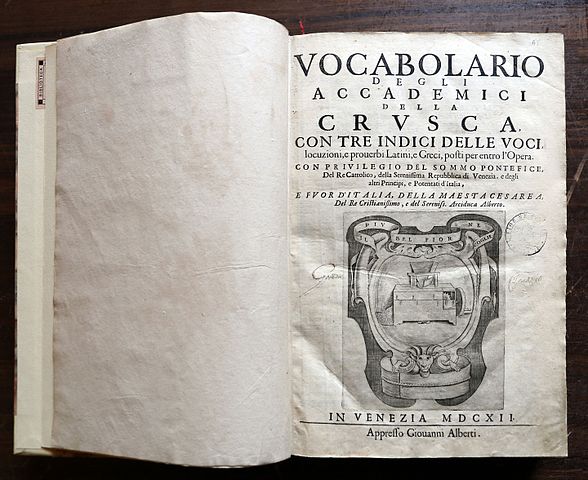Maturing In US Society
In the last post I offered a story about human evolution. In this post I offer a framework story for how we mature in US society.
Introduction
I’ve read a lot of philosophy material trying to define human nature. It seems to me that almost all those accounts start with adults. They start with a fully mature male (because of course they do), and you can almost feel the self-examination at the root.
One obvious example is René Decartes with his skeptical doubt of everything, leaving him with his “I think therefore I am”. He never seems to think of asking himself what he was before he could think, and then what he was when he first started to think, and then, wait, when did I start to think and what was that like? All those questions seem more interesting than his trivial proof of his own existence as a first step to deriving the world.
When I read this material, or listen to podcasts like Philosophize This by Stephen West and The Partially Examined Life. I often find myself asking the air “What is the pathway to that view?” The absence of a pathway permits all sorts of answers that seem ill-suited to our day.
And that’s what attracts me to Pragmatism. It tells me that those old guys are asking interesting questions, but that the answers aren’t always connected to the way we actually come to be ourselves, or the way we actually are. Cf. Gilles Deleuze, who seems to think all philosophers asked interesting questions for their day. He says we need to ask questions relevant to our own times, taking what we can from our predecessors. (Disclaimer, I haven’t read Deleuze, and rely solely on outside sources.
Becoming
So, here’s a story. It’s not a universal story like the one in the last post. Instead, it’s a kind of individual story that might apply to us.
Cat Bohannon writes a lot about nursing babies in her excellent and very readable book, Eve. One critical part of the process begins shortly after birth when the mother offers her breast to the newborn. As Bohannon describes it, the two have to work together to get the breast to provide sustenance. The newborn has an instinctive behavior, rooting, but the mother must help and the newborn must respond to the assistance. This might be a very early example of the cooperation that I think forms part of our wiring.
Through the next year or so the infant takes in all sorts of information without using words, without knowing what a word is. (H/T commenter Gruntfuttock). This information is experiential, not formal.
Then the little one learns to talk. This is also a cooperative process. It has already heard words, and maybe even worked out what they mean, like its name and mama and dada. As the vocabulary grows, the child can take in information from parents and others, including information about the use of language. Hopefully our little person stops licking everything in sight.
Then the questions start. Why is the sky blue? Why do I have to go to eat these green things? And more and more. And then they get harder. Why doesn’t X like me? Why can’t we go see Grandmother? Why do I have to go to school? Kids expect their questions to have answers, and to expect that the parents know the answer. Gradually they learn that other people have answers.
Then they learn that their parents don’t have all the answers and that they have given incomplete and misleading answers, and even wrong answers. They turn to new sources of information and answers. Hopefully they don’t get many wrong answers.
The point of this story
None of us made the world we live in. We didn’t create social norms, we didn’t generate any of the material goods we have, we didn’t create a morality. We just showed up. Our parents first, and then everyone else in our lives helps us grow accustomed to the social, physical, and moral world we inhabit. Hopefully we become able to survive in it, to succeed in it on its terms, and maybe even to add something to the accumulated store of human understanding.
We get used to living in a certain way. As Pierre Bourdieu explains, we develop a habitus, a set of practical responses to the things that might happen in our world. Once that habitus is in place, we have stock responses for almost all events. We don’t think. We just respond.
So how do we react when something happens for which our habitus is inadequate? What happens when something arises that raises doubts about the assumptions behind our habitus? I turn to the early Pragmatist C. S. Peirce (pronounced “purse”). I discuss his seminal 1879 essay in this post. Peirce says we don’t like to think. It’s hard. It’s no fun. And besides, we were just fine before that stupid doubt appeared.
Peirce says there are four responses to doubt. First, we could just ignore that irritating doubt. That works more or less well, depending on how important the belief is to our daily lives, and how irritating the doubt is. For example, we can do just fine with “the sun rises in the East”, unless we hang around with normal people who know better and laugh at us.
Second, we can look for an authoritative source to force other people to agree with us. Galileo found out about that.
Third, we might get together with other people and try to create a new view by consensus. That might work, depending on who we talk to. Hint: avoid QAnon people. Also people who you just found online.
Finally, we can try what we now call the scientific method.. This approach has been elaborated and partially formalized since Peirce’s time. For a good discussion, see Jonathan Rauch’s book, The Constitution of knowledge, discussed here. Because the same method, modified slightly, can be used for most subjects of expertise, we now generally think that expert knowledge is always contingent on new information and new ways of thinking about old information.
Individuals as individuals
1, So this, I think, is the way people mature. Of course, specific people can stop anywhere along the way. But the goal is always to find a place in a complex society that was there before us, will be there regardless of what we do, and will remain when we’re gone. But the process of maturation isn’t in itself a satisfying answer to the question of what it means to be an individual in the context of our society. I’ll offer a tentative answer in my next post
2. I don’t think this description is judgmental; it wasn’t meant to be. I think judgment of individuals has to be based on criteria outside the process of maturation.
3. I didn’t mention individual agency in this story. One element of habitus is the range of responses available to each of us in response to specific events. One of the goals of the people who raise us is to shape the rane of responses we consider in confronting an event. For example, our parents don’t want us to hit a sibling for taking a toy. That is a restriction on our individual agency.
Depending on the way we are raised, and the reactions we get from our responses to events generally, we limit our agency so that the responses are at least bearable. As an example, if we repeatedly do badly at school, we might form a habitus including the proposition that we aren’t very smart, and that limits the things we think we can do. This amounts to limiting our own agency. There are many ways in which society operates to limit our exercise of individual agency.


